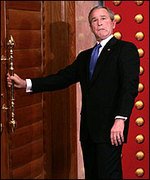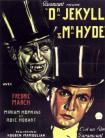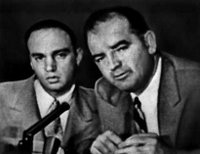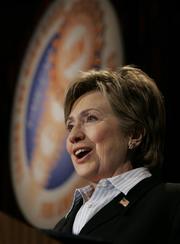
Below is David Brooks’ column from today's
NY Times. It’s one of his “big idea” columns.
From a surface reading, we would take away from the column that he does not advocate the vulgar Smithianism touted by neo-liberal economists that man is merely a wealth maximizer and the corollary that wealthier societies are thus economically and morally superior. Rather he appears to embrace the early twentieth century insight of anthropologists like Franz Boas that individuals are culturally bound and that judgments of cultural "superiority" are culturally bound as well.
But not so fast. Brooks, being a man of the right and thus a man with a predominantly nineteenth century colonialist worldview, can't help interjecting conservative theories about human nature as well as judgments about of the inferiority of one culture over another.
First let's look at Brooks' "big idea" observation that:
...“the big questions of the next century will be understanding how cultures change and can be changed, how social and cultural capital can be nurtured and developed, how destructive cultural conflict can be turned to healthy cultural competition.”
Here, although he claims to reject the universalistic economists’ view of man as a wealth maximizer, he is endorsing that basic assumption of capitalism that competition is generally good. But weirdly, when it comes to cultural competition, Mr. Brooks seems to be arguing for some kind of regulation or discipline to curb the potential for conflict. Presumably, the state would do this. Or some kind of international organization like the UN, which Mr. Brooks says does not work very well.
One wishes that Mr. Brooks could regulate the revanchist cultural program of neo-conservatism, a program launched in the 50s by Joe McCarthy as a vicious smear campaign that has recently seen its ultimate expression in the divisive and unhealthy (to use Mr. Brooks' terminology) tactics of Karl Rove. These Machiavellan masters of the divide and conquer strategy could certainly tone it down. Just ask John Kerry. Or John McCain. Or Max Cleland. Or all those blacklisted writers from the 50s.
But conservatives don't believe in regulation, however, and instead promote the race to the bottom both economically and ideologically, a competition which has made the world a more brutal and dangerous and unhealthy place.
In fact, the argument could be made that the culturally insensitive policies of the Bush administration has made the world less safe, that it has not promoted healthy competition between cultures.
The argument could be made, for instance, that the competition of the world's biggest oil consumers for Middle East oil has generated some pretty unhealthy competition. Perhaps we could have regulated the culture of consumption in the U.S. and other Western and Eastern nations toward healthier outcomes.
The argument could be made, too, that the US’s failure to respect sacred sites in Saudi Arabia by placing US military bases there generated Osama Bin Laden’s monstrous attack on New York and Washington. Or that the United States' continued illegal occupation of Iraq fans the flames of unhealthy ideological competition.
Finally on this score, if we take Brooks at his word, that cultures are “wildly diverse” then could we not assume that some cultures are not based on competition but cooperation? And if this is true than we could also argue that their cultures should be spared competition imposed upon them from outside?
In other words, Brooks, while claiming cultures have rights to their cultures is also saying that if they cannot engage in healthy competition, then they will suffer the consequences of irrelevance, or destruction by those who do engage in competition and promote it as a prime cultural value.
Now let’s take this paragraph on education, and do a deep dive into the conservative cultural assumptions it contains:
At home, we spend more money on education than any other nation. We have undertaken a million experiments to restructure schools and bureaucracies. But students who lack cultural and social capital because they did not come from intact, organized families continue to fall further and further behind — unless they come into contact with some great mentor who can not only teach, but also change values and behavior.
Here, in Brooks' typical soft-pedal construction is the conservative idea that poor people are morally degenerate because their families are not “intact.”
Poor families are not intact in Brooks’ conservative cultural universe because liberal welfare policies forced poor families to eject the father in order to realize the largest economic benefit from the government in the form of a welfare check. Let’s leave aside for the moment the purely economic motivation this ascribes to poor families for the absence of the father, a economistic, not culturally-based, explanation that flies in the face of Brooks’ larger argument that behavior is culturally bound.
Instead let’s counter that this simplistic economically-based charge against liberalism’s social welfare with a little history by pointing out this standard conservative explanation leaves out the fact that the great engine of job creation after WWII (an engine so powerful that even the poorest Americans were pulled in to service it), came to a shuddering halt in the 70s as America’s former enemies came roaring back with new plants, more efficient processes, better quality controls and government planning and financial assistance. American producers fought back by exporting American jobs, and with them went the dreams of many for stable a middle-class existence. Families buckled and broke under the strain.
According to the conservative’s master narrative, jobs were lost to a large extent because liberal social policies promoted lazy workers and their unions, and this, according to conservative economists, made US workers less productive than non-union workers both here and overseas. Workers and unions are thus made to shoulder to blame for complacent and shortsighted US corporate managers. Liberal supporters of social safety nets and unions are made responsible for the destruction of not only the family, but the US economy as well.
Brooks then goes on to suggests that the poor’s moral degeneracy can only be cured on an individual basis -- not by the State's manipulation of levers, economic or otherwise, but rather only by one’s family or in morally degenerate families by an individual, a hero, a mentor. This a favored fairy tale of the Right – the kind of Horatio Alger story that places undue pressure on the family and the individual and none on social circumstances.
In actual fact, it has been shown there is a direct correlation between spending and good grades: the more money spent on students per capita the higher the grades. And even Brooks' individualistic mentor solution has a better chance of happening if teachers’ salaries were commensurate with the importance of the work they do.
Not only that, but Brooks tacitly admits what is really at work in producing the best and brightest students: the leg up that kids who come from economically successful homes intrinsically enjoy over poor students. Brought up on the successful side of the economic divide, kids from better off families also enjoy a privileged perspective on how the cultural levers of power can be manipulated to maintain and extend their own economic power.
But, enough. I’ve got work to do. Healthy competitive work. My corporate culture pitted against another corporate culture. This will ultimately result, according to Mr. Brooks, in a better world. But as for me, I’m not so sure.
QUESTIONS OF CULTURE
By David Brooks
Once, not that long ago, economics was the queen of the social sciences. Human beings were assumed to be profit-maximizing creatures, trending toward reasonableness. As societies grew richer and more modern, it was assumed, they would become more secular. As people became better educated, primitive passions like tribalism and nationalism would fade away and global institutions would rise to take their place. As communications technology improved, there would be greater cooperation and understanding. As voters became more educated, they would become more independent-minded and rational
None of these suppositions turned out to be true. As the world has become richer and better educated, religion hasn't withered; it has become stronger and more fundamentalist. Nationalism and tribalism haven't faded away. Instead, transnational institutions like the U.N. and the European Union are weak and in crisis.
Communications technology hasn't brought people closer together; it has led to greater cultural segmentation, across the world and even within the United States. Education hasn't made people moderate and independent-minded. In the U.S. highly educated voters are more polarized than less educated voters, and in the Arab world some of the most educated people are also the most fanatical.
All of this has thrown a certain sort of materialistic vision into crisis. We now know that global economic and technological forces do not gradually erode local cultures and values. Instead, cultures and values shape economic development. Moreover, as people are empowered by greater wealth and education, cultural differences become more pronounced, not less, as different groups chase different visions of the good life, and react in aggressive ways to perceived slights to their cultural dignity.
Economics, which assumes people are basically reasonable and respond straightforwardly to incentives, is no longer queen of the social sciences.
The events of the past years have thrown us back to the murky realms of theology, sociology, anthropology and history. Even economists know this, and are migrating to more behaviorialist and cultural approaches.
The fundamental change is that human beings now look less like self-interested individuals and more like socially embedded products of family and group. Alan Greenspan said that he once assumed that capitalism was "human nature." But after watching the collapse of the Russian economy, he had come to consider it "was not human nature at all, but culture."
During the first few years of life, parents, communities and societies unconsciously impart ways of being and of perceiving reality that we are only subliminally aware of. How distinct is the individual from the community? Does history move forward or is it cyclical? How do I fulfill my yearning for righteousness? What is possible and what is impossible?
The answers to these questions are wildly diverse, and once worldviews have been absorbed, they produce wildly different levels and types of social and cultural capital. East Asians and Jews, for example, seem to thrive commercially wherever they settle.
It turns out that it's hard to change the destinies of nations and individuals just by pulling economic levers. Over the past few decades, America has transferred large amounts of money to Africa to build factories and spur economic development. None of this has worked. As the economists Raghuram Rajan and Arvind Subramanian demonstrated, there is no correlation between aid and growth.
At home, we spend more money on education than any other nation. We have undertaken a million experiments to restructure schools and bureaucracies. But students who lack cultural and social capital because they did not come from intact, organized families continue to fall further and further behind — unless they come into contact with some great mentor who can not only teach, but also change values and behavior.
It all amounts to this: Events have forced different questions on us. If the big contest of the 20th century was between planned and free market economies, the big questions of the next century will be understanding how cultures change and can be changed, how social and cultural capital can be nurtured and developed, how destructive cultural conflict can be turned to healthy cultural competition.
People who think about global development are out in front in thinking about these matters. (I'd recommend rival anthologies: "Culture Matters," edited by Lawrence Harrison and Samuel Huntington, and "Culture and Public Action," edited by Vijayendra Rao and Michael Walton.) But the rest of us will catch up soon.
 I've been listening to a remarkable series of lectures offered by the Teaching Company, taught by Allen C. Guelzo entitled The American Mind.
I've been listening to a remarkable series of lectures offered by the Teaching Company, taught by Allen C. Guelzo entitled The American Mind. 





















